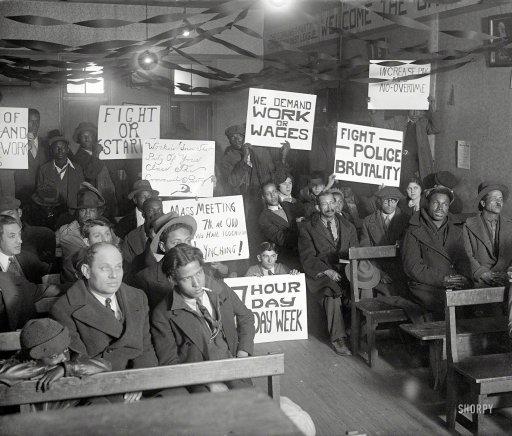
Georgia O’Keeffe Red poppy 1927

Andrew Korybko:
Background Briefing
Brazil and Chinese reached an agreement earlier this week to de-dollarize their trade, which will accelerate financial multipolarity processes amidst the global systemic transition. The timing was curious, however, since Brazil’s Agriculture Minister Carlos Favaro told the media last weekend that “All government actions are postponed” due to Lula canceling his planned trip after falling ill. Even though he rescheduled it for 11-14 April, the parties decided to sign it last week instead of waiting till then.
Furthermore, this took place on the same week that the US hosted its second “Summit for Democracy”, which Lula didn’t attend via video as planned on the pretext of his recent illness. Nevertheless, he sent a lengthy statement that allied media misreported as pro-Russian, the description of which is discredited by verifiable facts from official sources here as well as the text itself that was later published in full here. Russia isn’t mentioned therein at all, and it actually reads like a love letter to the US Democrats.
Lula’s Ideological Alignment With The US’ Liberal-Globalists
Lula is ideologically aligned with those liberal–globalists, which intrepid readers can learn more about by perusing the collection of articles shared at the end of this analysis here. It’s therefore unsurprising that his letter implied that the Brazilian opposition are “extremists”, condemned the “disinformation” that he hints is driving the latter as a pretext for potentially imposing more censorship in the coming future as part of his US-backed power consolidation campaign, and praised “LGBTQIA+” people.
These agendas that he pushed in his statement to the “Summit for Democracy” also align with the causes that are aggressively propagated across the world by Color Revolution financier George Soros, who enthusiastically endorsed Lula in his speech at the Munich Security Conference in mid-February. The last one regarding LGBTQIA+ people in particular directly contradicts Russia’s official support for traditional moral values as promulgated in its new foreign policy concept that can be read here.
In the eighth paragraph, Russia warns that “A wide-spread form of interference in the internal affairs of sovereign states has become the imposition of destructive neoliberal ideological attitudes that run counter to traditional spiritual and moral values.” This passage justifies its official goal of defending traditional moral values that’s mentioned a dozen times, explains why Russia banned LGBT+ propaganda, and adds context to President Putin’s conclusion that the liberal elite promote pedophilia.
Managing US Perceptions Of Brazil’s Financial Multipolarity Policy
The socio-cultural dimension of Lula’s worldview is therefore opposed to Russia’s, which he presumably regards as “bigoted” and “fascist” just like his liberal-leftist supporters generally do. Nevertheless, these two BRICS countries still share the common goal of financial multipolarity, thus explaining his decision to de-dollarize Brazilian-Chinese trade. Returning to that development, its timing suggests that Lula wanted this to happen comparatively more quietly than him announcing it while standing with his counterpart.
Since it was already agreed upon, his challenge was therefore to manage US perceptions since he didn’t want to risk offending his fellow “social justice warriors” there like AOC and Bernie Sanders, both of whom he met during his trip to DC in February. Lula also wanted to avoid offending his new buddy Biden too after those two agreed to comprehensively strengthen their countries’ strategic partnership in their joint statement, which can be read at the official White House website here and was analyzed here.
To that end, his latest illness was politically convenient in the sense that it allowed him to postpone his planned trip so that it didn’t coincide with the US’ second “Summit for Democracy” and subsequently authorize the de-dollarization deal’s signing in his absence to comparatively less attention. As was explained above, he wanted to do his best to manage US perceptions about this development that advances Brazil’s goal of financial multipolarity at the dollar’s indisputable expense.
The Scenario Of Russian-Brazilian Ideological Competition In Africa
For as much as his media allies and social media sycophants claim otherwise, it’s nevertheless factually false to describe Lula as opposed to the US as proven by his previously cited statement to the last week’s summit participants as well as his joint one with Biden in February that was hyperlinked above too. Despite his promotion of financial multipolarity at the dollar’s indisputable expense, he’s solidly aligned with the US’ ruling liberal-globalists, especially in the domestic political and socio-cultural sense.
The two referenced statements prove that Lula shares Biden’s liberal-globalist mission of delegitimizing their respective opposition as “extremists”, preparing for imposing more censorship on that aforementioned pretext, and propagating LGBT+ causes in full cooperation with each other. The last-mentioned part directly contradicts one of the key precepts contained in Russia’s new foreign policy concept regarding the defense of traditional moral values and thus constitutes a hybrid threat.
Be that as it may, Brazil as a state isn’t a threat to Russia, but its potential propagation of LGBT+ causes in collusion with the US in third countries where Moscow also has interests such as those traditionally conservative ones in Africa like Uganda could constitute an unfriendly asymmetrical challenge. Russia and Brazil might therefore find one another competing for hearts and minds there, with the first defending restrictions on LGBT+ propaganda and the second agitating locals against them.
Brazil’s Envisaged Balancing Act Between China & The US
As regards China, however, Brazil isn’t expected to clash or compete with it in any form since Lula actually envisages his country balancing between it and the US. On the one hand, China is Brazil’s top economic partner and an ally in advancing their shared goal of financial multipolarity. On the other hand, the US is Brazil’s top security partner and is nowadays also a source of inspiration for its liberal-globalists who model themselves off of its ruling Democrat Party, thus explaining his balancing act.
It was earlier touched upon in passing in this analysis here, which interpreted Foreign Minister Vieira’s praise of China in an interview as implying “the possibility of Brazil attempting to balance between the Golden Billion’s US leader with whom Lula has politically aligned himself against Russia and the Sino-Russo Entente’s Chinese economic engine”. Regardless of how successful this approach proves to be, observers should note that Russia isn’t expected to play any prominent role in Lula’s grand strategy.
Trade will likely continue to grow since it’s mutually beneficial, but political ties could soon worsen in the event that Lula extradites a suspected spy to the US to face charges instead of deporting him back to Russia, which readers can learn more about here. Foreign Minister Lavrov’s potential trip to Brazil this month will likely focus on that issue while also exploring the possibility of further expanding their economic ties, particularly in the energy sector like that country’s Ambassador to Russia suggested.
Debunking The “Big Lie” Of The Brazilian Left
Lula’s appointment of former President Rousseff to lead BRICS’ New Development Bank (NDB) should therefore be interpreted in the context of advancing Brazil’s financial multipolarity goals instead of having anything to do with Russia like his media allies and social media sycophants are spinning it as. The ”Big Lie” of the Brazilian left and their supporters abroad is that Lula is pro-Russian even though the facts prove that he’s politically aligned with the US against it in that country’s proxy war with NATO.
They’ll spin anything that he does to lie that he’s secretly allied with Russia against the US despite the facts cited in this analysis from official sources comprehensively debunking that literal conspiracy theory. This “politically inconvenient” fact can never be openly acknowledged even in the scenario that he extradites that suspected spy to the US to face charges instead of deporting him back to Russia since those propagandists fear that it’ll expose the truth about Lula’s US-aligned liberal-globalist worldview.
In their minds, the false perception of Lula as a “multipolar revolutionary opposed to US hegemony” must be maintained at all costs lest the aforesaid truth about his worldview prompts a political revolt among the Workers’ Party’s base that results in him being pressured to recalibrate his grand strategy. This explains why they’re so actively pushing the latest disinformation narrative falsely alleging that his de-dollarization deal with the US supposedly means that he’s opposed to it and aligned with Russia.
The Future Of Russian-Brazilian Relations
In reality, Russia is only considered by Lula to be a commodities partner and a country to cooperate with in pursuit of their shared financial multipolarity goals. He’s fiercely opposed to its official defense of traditional moral values and especially the military moves that it was forced to make in defense of its national security red lines in Ukraine after NATO clandestinely crossed them there. Lula won’t ever say so openly, but he in all likelihood thinks that Russia is “bigoted”, “fascist”, and “imperialist”.
Even so, he’ll still cooperate with it on issues of shared interest as explained, but neither can rely on one another beyond that like Russia can depend on fellow BRICS partner India, which Lula probably also thinks is led by “bigots” and “fascists” in accordance with his liberal-globalist worldview. Artificial limits are imposed on their partnership due to the Brazilian leader’s radical ideology, which all honest observers must acknowledge if they aspire to accurately analyze his grand strategy going forward.


We try to run the Automatic Earth on donations. Since ad revenue has collapsed, you are now not just a reader, but an integral part of the process that builds this site. Thank you for your support.

Support the Automatic Earth in virustime with Paypal, Bitcoin and Patreon.









